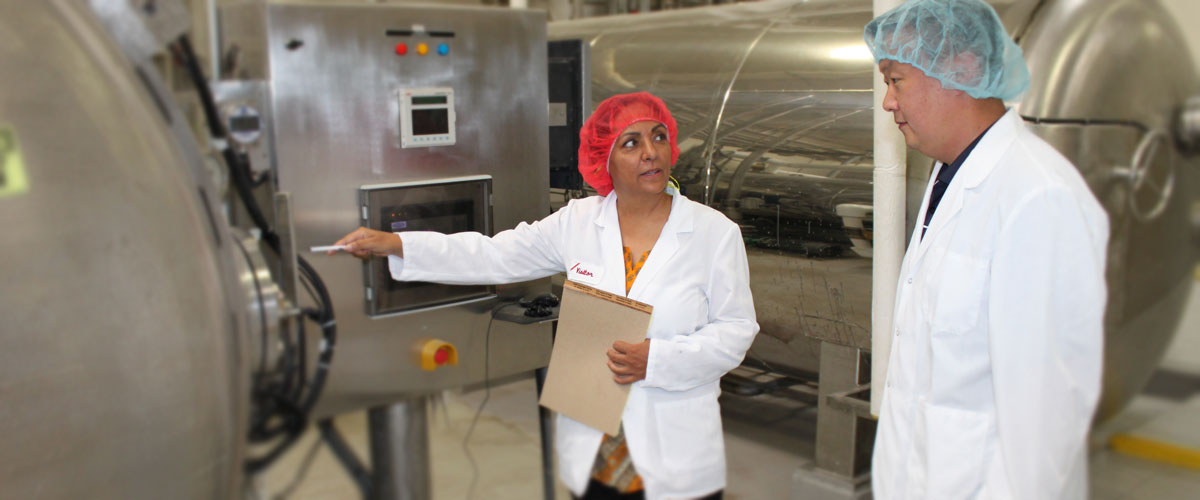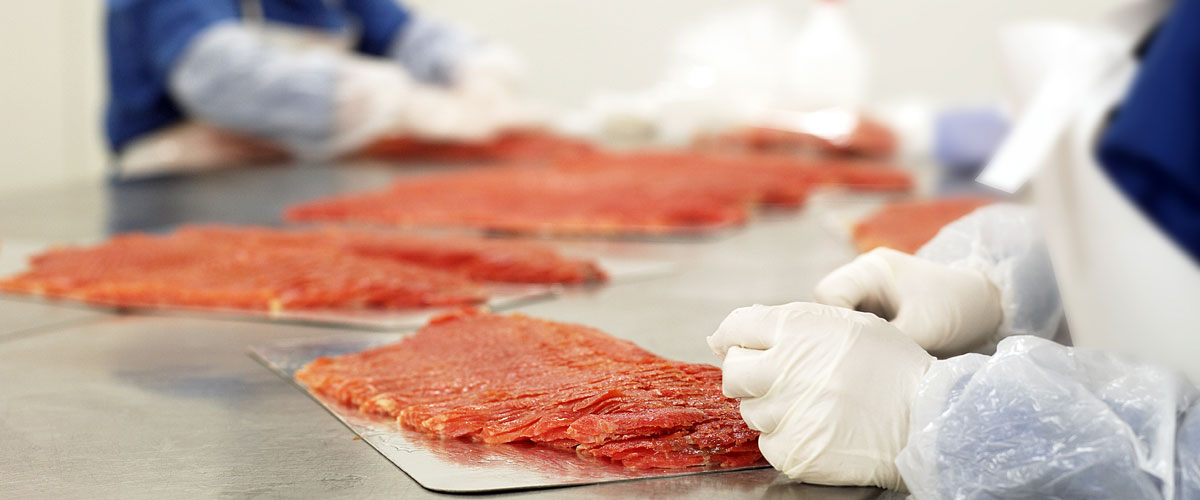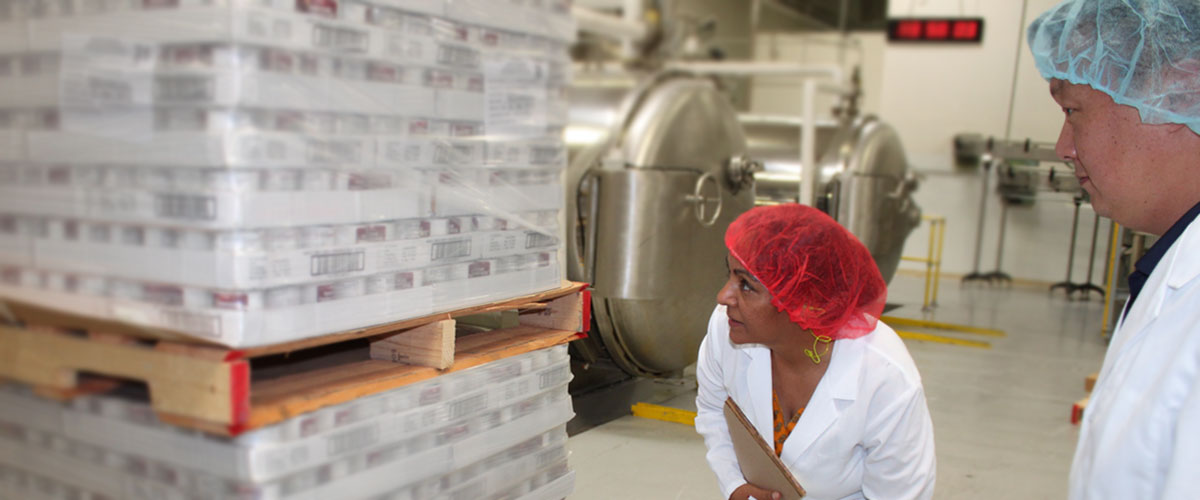Does Your Food Safety Auditor Have the Right Stuff?

Author: Heena Patel, Technical Director of Food Safety
Food safety weighs heavily on all companies that produce, handle or sell food. A single incident can cost a company, and sometimes an entire industry, serious reputational harm and business disruption. Think Chipotle in the US, or MacDonalds and KFC in China. The ripple effects of a food safety scare can be enormous. The 2011 listeriosis scandal was traced to a single Colorado producer, but damaged the entire US cantaloupe industry. The spinach, lettuce, and tomato industries have suffered similar fates in recent years.
Demonstrated conformance with food safety standards is now de rigueur throughout the food supply chain, a fact of doing business. Auditable certification standards targeting farms, facilities, and retailers – such as those administered by SQF, GLOBALG.A.P, BRC, ISO 22000, FSC 22000, Harmonized Good Agricultural Practice (GAP), and Good Manufacturing Practices (GMP) – all provide guidance to help companies and customers steer clear of food safety crises.
Dig a little deeper, however, and you’ll discover one key factor that is often overlooked– namely, auditor competence. Ultimately, it’s up to the auditor to interpret the standard’s intent during the farm or facility assessment. It’s like the difference between a good cook and a great chef – it’s not just about following the recipe, but about bringing a critical eye to the process, a combination of expertise and instinct.

Here’s where experience counts
It goes without saying that the best food safety auditors are those with lots of experience in the field. Experienced auditors take an early read on whether senior management treats the audit seriously, which team members are best prepared, and even how smoothly the audit itself is likely to proceed. They pay attention to lack of attention. Teamwork is vital, as is competency and ability to lead. Seasoned auditors recognize that just because a person has been named Director of Food Safety or something similar, this title alone may not be indicative of qualifications or ability to implement and enforce the rigorous measures needed to clamp down on risk.
Professional auditors and auditing firms know that there are no real shortcuts. Sufficient time must be dedicated to the audit to be thorough. Lack of thoroughness – what I call “fly-by” audits – may save a company money in the short-term, but are short-sighted, and can easily lead auditors to overlook critical details, resulting in increased risk. The best auditors are curious, with a knack for digging into the details.
Collaboration and mutual respect are crucial in the auditor-client relationship. The key for the auditor is to maintain integrity without compromising independence. This means not getting too cozy with clients. It means asking very direct, sometimes uncomfortable questions. I’m proud that SCS Global Services has always placed an emphasis on doing the job right.

Expect the unexpected
Discovering and plugging potential holes to reduce food safety risk is the essence of the auditor’s job. Here are three examples of findings that the client wasn’t expecting.
- Discovering an allergen not disclosed on the package - This finding resulted in a temporary suspension of production, and a voluntary recall of the product. Recalled product was destroyed, and product labels were updated to include the allergen. The client recognized that the cost of recall and relabeling was far less than the potential cost to brand reputation and sales had the allergen not been uncovered.
- Problems with the facility itself - A knowledgeable auditor recognizes building structures -- such as ceilings, walls, floors and fixtures -- that do not meet food safety requirements, due to material permeability or incompatibility, or poor maintenance. In this case, the auditor’s findings led the company to invest in the necessary building upgrades to mitigate risk.
- Inadequately trained team members - The team was not properly trained to recognize and assess food safety issues, and therefore could not effectively manage the company’s food safety program. Based on this audit finding, senior management was reengaged, and the food safety team undertook additional training.
Other examples of common “fixes” arising from effective food safety audits include segregation of storage and production areas, streamlining production flows to minimize risk of accidental contaminations, and rerouting employee flows to minimize risk of recontamination.

Preparing for the audit
Companies being audited often rely too much on auditors to put them on the right track. The smartest companies do their best to put the auditor’s hat on long before the auditor arrives. In preparation for the audit, your interests will be best served by: 1) becoming familiar with the certification program requirements; 2) reviewing the audit checklist; and 3) conducting your own internal audits in advance of the auditor’s arrival, being as strict as possible. Remember, findings come in four flavors: critical non-conformances (automatic failure), major non-conformances, minor non-conformances, and opportunities for improvement. The number and percentage of major and minor conformances that must be addressed prior to certification vary by program, and opportunities for improvement can become non-conformities over time.
The auditor’s report isn’t the end of the line. Audit reports undergo technical review, and the ultimate decision as to whether or not to issue a certificate is not made by the auditor. But as you can see, your choice of auditor and auditing firm can make a huge difference for your company’s food safety program.
Heena Patel is Technical Director, Food Safety for SCS Global Services’ Food and Agriculture Division, and was named SQF Auditor of the Year in 2015. Her food safety auditing and certification expertise includes SQF, BRC, HACCP, GMP, farm audits, organic, ethical sourcing, food security, and quality, and she is an experienced food safety trainer. Heena earned her triple Bachelor of Science degree in Food Microbiology, Cell Biology, and Biochemistry from the University of Auckland in New Zealand.
For Inquires or Comments: Contact us Today.
